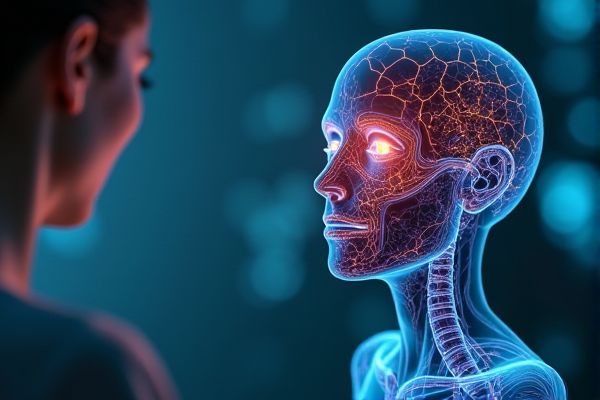
AI technology enhances elderly care by providing personalized assistance and monitoring health conditions with precision. Smart home devices equipped with AI can adapt to the specific needs of seniors, offering reminders for medications and facilitating communication with family members or caregivers. Predictive analytics in AI helps identify potential health risks before they become critical, enabling timely interventions. Robotics powered by AI can assist with mobility and daily tasks, fostering independence while ensuring safety for elderly individuals.
AI usage in elderly care
**Fall Detection Systems**
Fall detection systems equipped with AI can significantly enhance elderly care by providing timely alerts to caregivers. These systems utilize sensors and machine learning algorithms to accurately identify falls and distinguish them from regular movements. Incorporating such technology in nursing homes, like Sunny Acres Care Facility, may lead to improved response times and greater peace of mind for family members. The integration of fall detection can ultimately reduce hospitalizations and facilitate safer living environments for seniors.
**Health Monitoring Devices**
Health monitoring devices can significantly enhance elderly care by providing real-time data on vital signs and health metrics. For instance, devices such as remote heart rate monitors enable caregivers to track any irregularities promptly. This technology can facilitate early intervention, potentially reducing hospital visits and improving patient outcomes. The integration of such tools into daily routines may also allow seniors to maintain more independence while ensuring their health remains a priority.
**Medication Management**
AI can enhance medication management for elderly individuals by providing reminders for dosages and tracking medication intake. Tools like the MedMinder system demonstrate the potential for improved adherence to prescriptions, thereby minimizing the risk of adverse health events. The integration of AI can also facilitate communication between caregivers, healthcare professionals, and patients, ensuring a holistic view of health management. This technology may lead to better health outcomes and increased independence for seniors living at home.
**Cognitive Assistance Tools**
Cognitive assistance tools have the potential to enhance elderly care by supporting memory and daily tasks. These tools can help seniors maintain independence and improve their quality of life, reducing the need for constant supervision. For example, platforms like LifeBio offer interactive storytelling that engages seniors cognitively and emotionally. The integration of such technologies may lead to better mental health outcomes and a more meaningful life experience for older adults.
**Voice-Activated Assistants**
Voice-activated assistants can significantly enhance elderly care by providing immediate access to information and assistance. For example, devices like Amazon Echo can help seniors manage their daily routines, such as medication reminders. This technology offers the possibility of reducing feelings of isolation by facilitating communication with family and friends. Implementing voice-activated systems may also lead to increased independence for seniors living alone, potentially improving their overall quality of life.
**Emergency Response Services**
AI implementation in elderly care can enhance Emergency Response Services by enabling quicker identification of emergencies. Intelligent systems can monitor vital signs and detect anomalies, allowing medical staff to respond promptly. For instance, using AI algorithms, a service like Life Alert can improve decision-making during critical situations. This potential integration may lead to better health outcomes and increased safety for the elderly population.
**Social Interaction Platforms**
AI can enhance social interaction platforms designed for elderly care by facilitating communication among users. These platforms, such as SilverSurfers, can connect seniors with family, friends, and caregivers, fostering a sense of community. Through AI-driven features, tailored content and reminders can promote engagement and reduce feelings of isolation. The potential for increased social interaction may significantly improve the overall well-being of elderly individuals.
**Virtual Reality Therapy**
Virtual Reality Therapy can enhance elderly care by providing immersive experiences that promote mental and emotional well-being. This innovative approach allows seniors to engage in activities, such as virtual travel or social interactions, which might not be feasible in real life. Institutions like nursing homes can integrate this technology into their programs to stimulate cognitive function and reduce feelings of isolation. The potential for improving quality of life through such advancements in elderly care is significant.
**Disease Prediction Algorithms**
The integration of AI in elderly care presents the possibility of enhanced health monitoring through Disease Prediction Algorithms. These algorithms can analyze patient data, potentially identifying early signs of conditions such as dementia or heart disease. Institutions like nursing homes may benefit from implementing these tools, leading to timely interventions and personalized care plans. The advantage lies in the potential reduction of emergency situations and improved overall well-being for elderly individuals.
**Caregiver Support Solutions**
AI can enhance elderly care by offering personalized support through platforms like Caregiver Support Solutions. These tools can help monitor health metrics and provide reminders for medication, thus improving adherence. The likelihood of reducing caregiver stress through automated assistance is significant, as it allows them to focus on emotional support. Integration of AI can lead to better outcomes in the quality of life for seniors, showing promise in transformative care.
 techknowy.com
techknowy.com